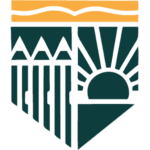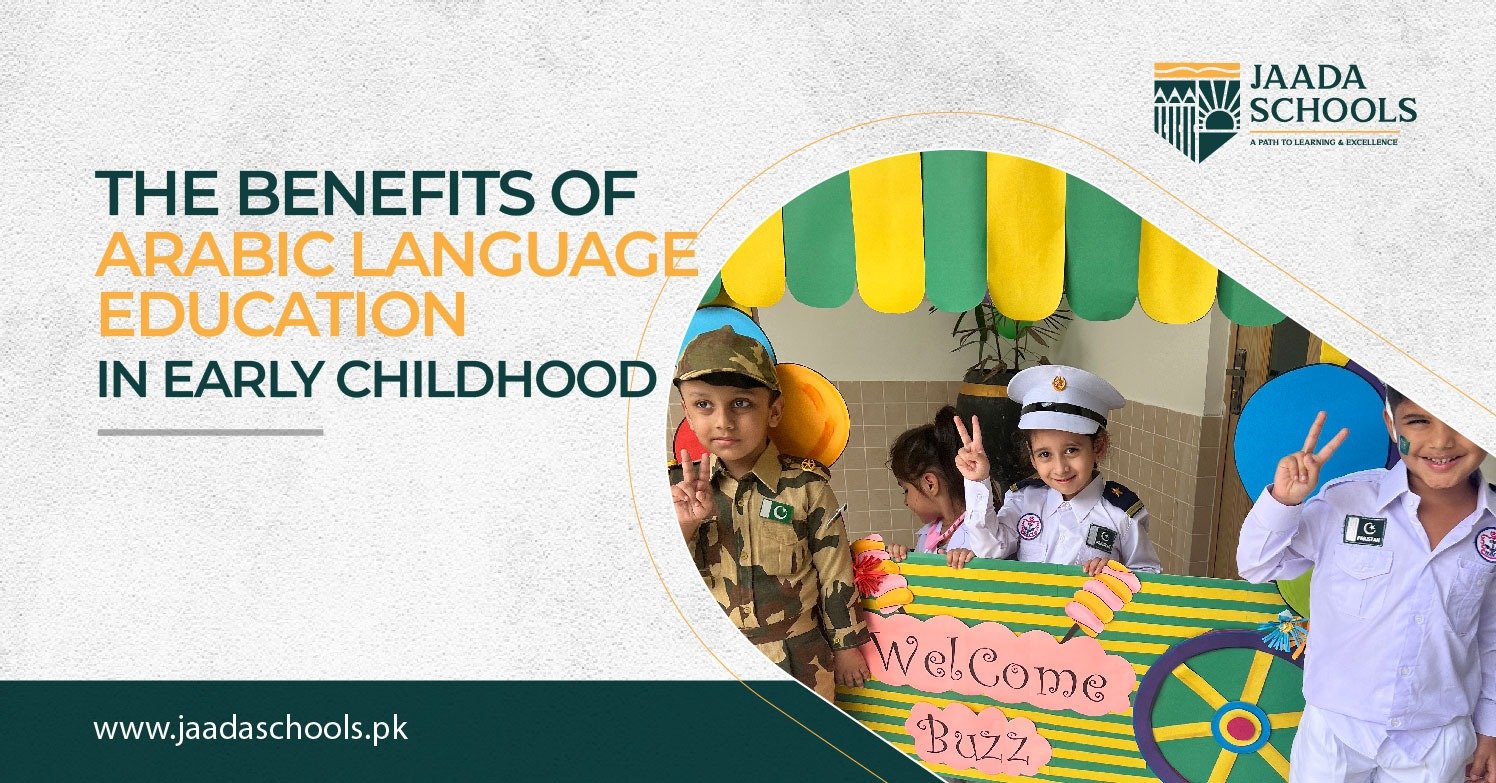Arabic language education in the early years is not about learning new words and grammar; but it is essential for developing cultural identity, cognitive growth, and confidence. Learning the Arabic language in the early years also boosts brain development and problem-solving skills. In this blog, we will discuss how Jaada’s Arabic language education approach develops well-grounded and globally competent individuals. It is essential for parents to understand the importance of balanced bilingualism in the early years. Let’s get into it.
——————————————————————————————————————————————————————————————————————————————-
Arabic Language Education: Key Benefits for Early Learners
How to Learn Arabic Language | Islamic Studies | Arabic Language Course
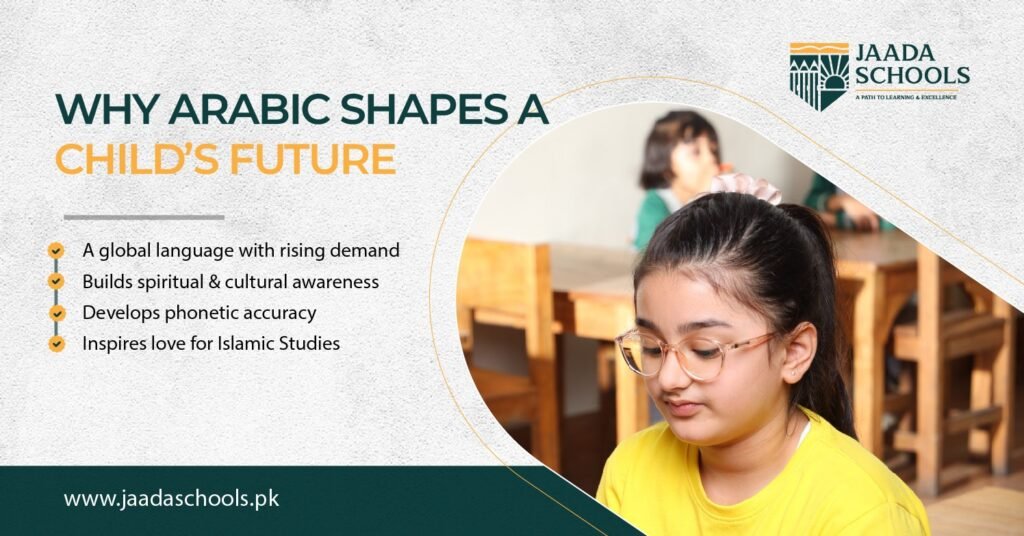
Early years are the foundational stage for developing core skills in your child. In these years, children pick everything more accurately, and their learning ability is stronger. Second language incorporation in early years has a strong impact on a child’s academic, emotional, and personal growth. It develops core skills like social, mental, and emotional skills, along with spiritual connectivity.
Learning Arabic in the early years means choosing the best education system that focuses on developing linguistic abilities, cultural awareness, creativity, and confidence. Jaada schools are focusing on nurturing children through their comprehensive approaches. Let’s look into Jaada’s balanced approach to Arabic learning for developing well-rounded individuals.
Importance of Learning a Second Language in Early Years
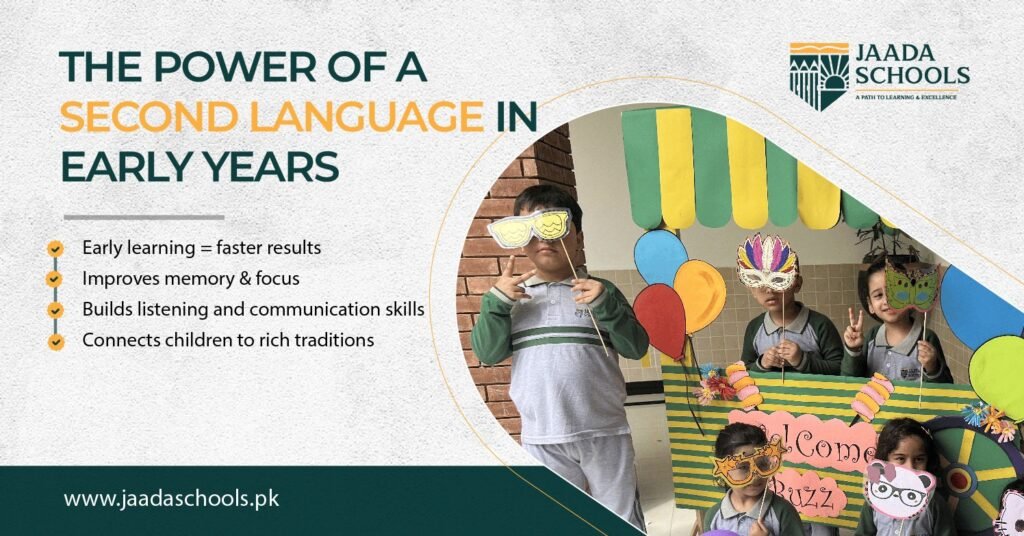
The early years are the best time period for second language development in kids because the brain is more receptive to new sounds during this time period. Research also shows that second language or multiple language incorporation in early years boosts neural connectivity, problem-solving skills, and memory improvement.
Early years exposure to the Arabic language developed a connection with the culture, religious, and literary heritage. It’s not about speaking fluently but also about developing emotional intelligence and social skills. It also helps children to recognise tone and expressions. It also develops better interpersonal, understanding, and listening skills in children.
Why Arabic Language Matters in Early Childhood?
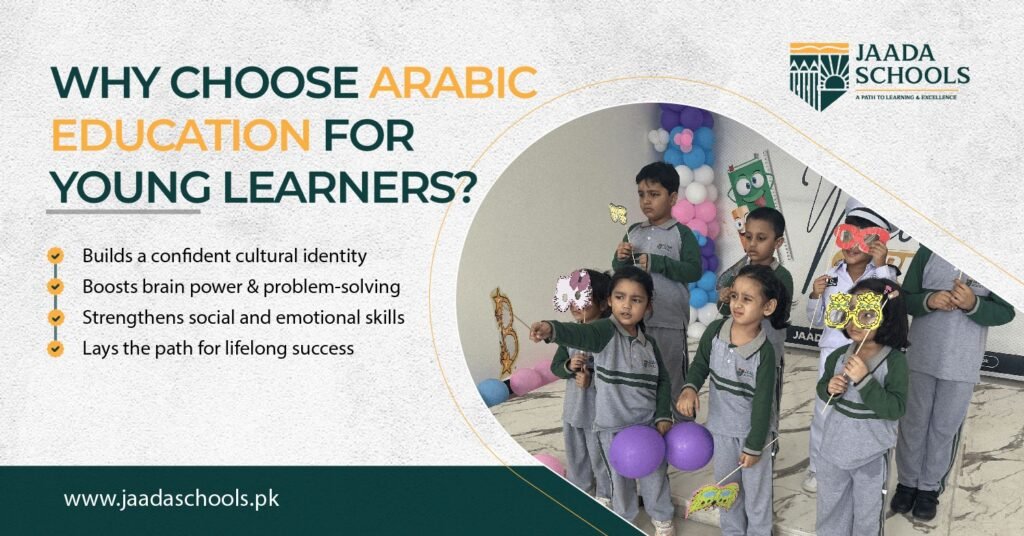
The Arabic language is a global in-demand language around the world. It means learning Arabic in the early years means opening doors to cultural understanding, spiritual connection, and the development of cognitive abilities. It also develops a sense of belonging and identity in a cultural context.
It is also important for building communication, understanding of diverse cultures, and a spark for learning Islamic Studies. Early childhood helps in brain development and building recognition patterns for more accurate familiarity with phonetics and structure.
Core Benefits of Learning Arabic Language in Early Childhood
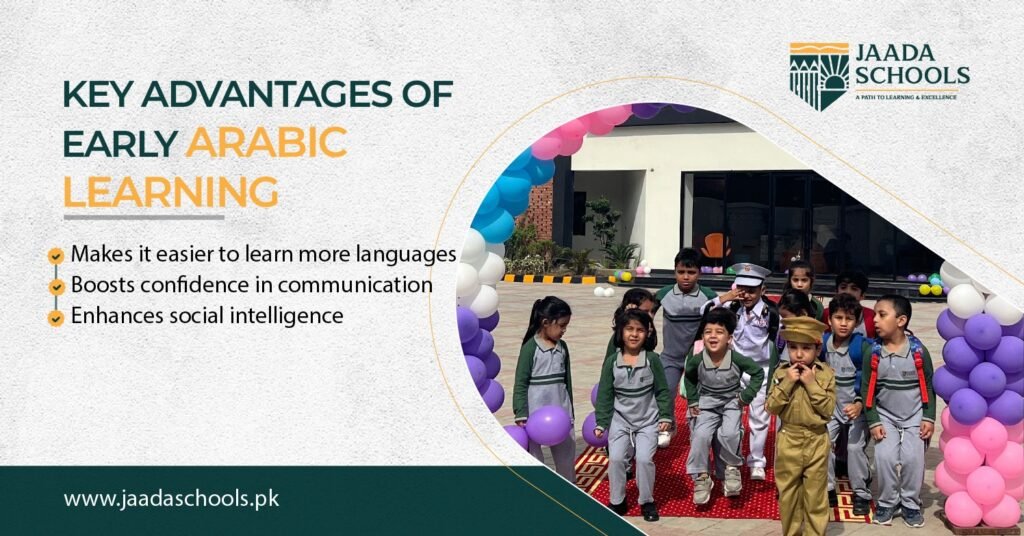
Learning the Arabic language in the early years means the development of a multitude of benefits, not just related to communication but beyond that. It makes the foundation of the child by developing linguistic flexibility and making it easier to learn additional languages. Let’s look into the core benefits of Arabic language learning.
-
Building Cultural and Spiritual Identity
Arabic language learning shapes cultural and spiritual identities. It also helps children connect with their religious practices because of its literature and heritage. The best language school develops pride and a sense of belonging with cultural roots. Early familiarity means boosting learning and reciting ability.
-
Cognitive and Linguistic Development
During early childhood, children’s brains are highly adaptable to learn the Arabic language and new things. It also helps stimulate linguistics. It also develops memory, attention, cognitive abilities and logical thinking.
-
Long-Term Academic and Global Success
Early childhood bilingual education developed long-term academic success by developing many core skills and abilities. Adopting the Learn Arabic language education in the early years means the development of global opportunities.
-
Emotional and Creativity Development
Along with other skills, the incorporation of bilingual education in early years also enhances Intelligence and creativity skills. It also enables kids to express their feelings and ideas more confidently and effectively. It promotes Inventive thinking and curiosity in children.
How Jaada Schools Nurture the Arabic Language Education in Early Years?
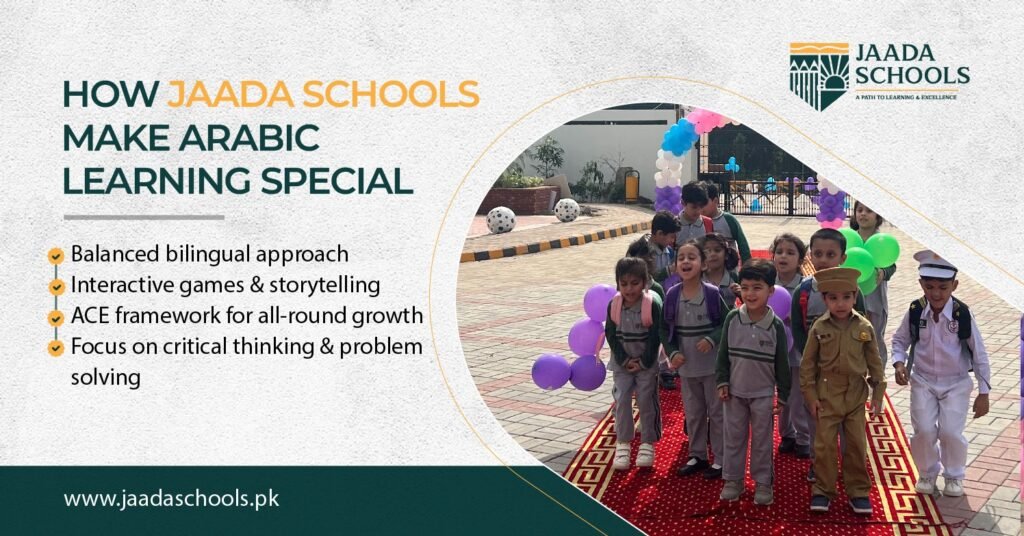
At Jada schools, we follow a Holistic approach to the education of the Arabic language. We adopt many crucial and well-rounded approaches, such as interactive methods. We promote bilingual education through engaging kids in enjoyable and fun activities like storytelling sessions and educational games. Our purpose is to develop well-grounded individuals with their roots.
Our balanced bilingualism and real-life implications of crucial Strategies for developing critical thinking, emotional development, and problem-solving skills are the dynamics of our education system. Our vision is to follow the ACE framework.
Why Parents Should Choose Jaada Schools for Arabic Education and Holistic Growth?
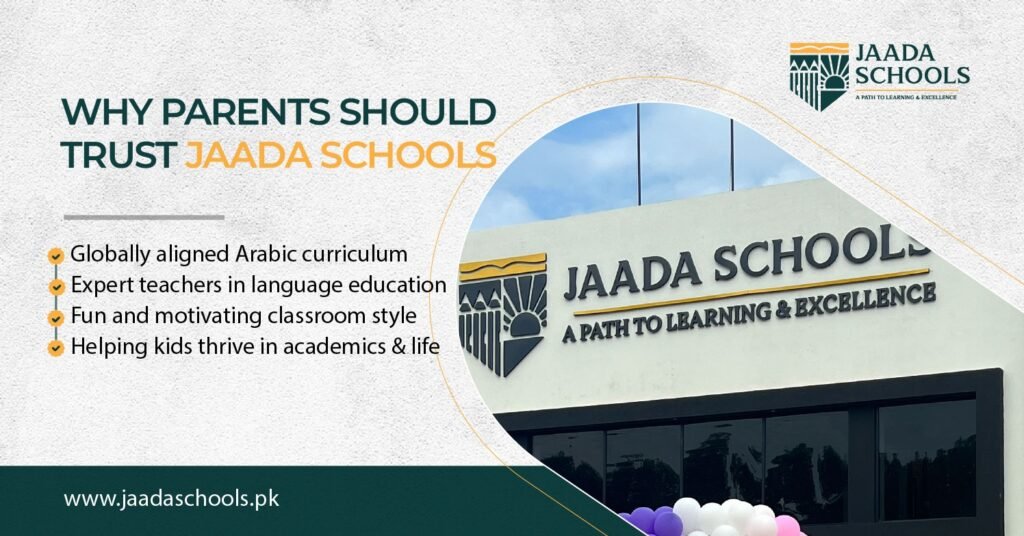
Parents need to choose the best platform for their child’s bilingual education in the early years. At Jaada Schools, our Arabic curriculum is specifically developed to stimulate core skills in your child. Our framework and curriculum are aligned with parents’ requirements, which will help the child thrive in the global world.
Choosing Jaada schools means choosing a reliable and grounded educational institution for your children. Our leaders are experts and have in-depth knowledge about language acquisition, literacy and cultural awareness.
Conclusion
If you are searching for a balanced bilingual institution that focuses on traditional and cultural values. Then Jaada Schools has got you. Our programs are specifically designed for developing strong character and confident individuals. Our interactive methods and strategies are fun and engaging for the child’s holistic growth. Moreover, we also focus on developing other core skills along with preparing the child for long-term academic and global success. Contact us today for further queries and admission guidance.
Will Learning a Second Language Affect a Child's Proficiency in the First Language?
No, our balanced approach follows holistic ways that develop a second language, along with strengthening the first language. Child will enhance their cognitive flexibility and literacy in both languages.
How do You Make Arabic Language Education Fun and Interactive at Jaada Schools?
We follow a specifically designed curriculum that includes interactive methods like storytelling, role playing and games. It helps boost creative thinking and learning ability. Our fun sessions are designed for developing motivated and confident children.
How Often Students Practice Arabic at Jaada Schools?
Our Arabic curriculum follows specific patterns on a regular basis. It includes lessons, interactive activities and classroom communications. Our daily exposure and integrated approach help to enhance children's learning ability.

